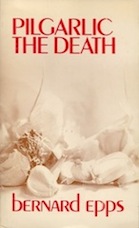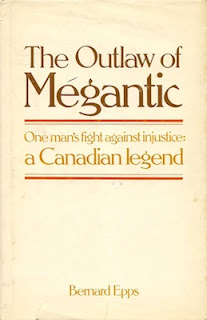The Hohenzollerns in America;
With the Bolsheviks in Berlin and Other Impossibilities
Stephen Leacock
Toronto: S.B. Gundy, 1919
Robertson Davies hated this book. "Leacock at his worst," he wrote in
his ill-fated tribute to the man, adding: "Nevertheless, we may not dismiss it; he wrote it, and if we accept the sunshine, we must not shrink from a peep into the dank chill of his shade."
Centring on the lengthy title story, Davies' disgust is anything but unique. Biographers David M. Legate, Albert Moritz and Theresa Moritz express similar opinions, while Ralph L. Currie, the first to pen a life of Leacock, chooses to simply ignore it. In her Leacock book, Margaret MacMillan complains that the story is "too broad and too crude." Writes the author of
Paris 1919:
The title piece of his 1919 book, The Hohenzollerns in America, starts from the amusing conceit that the German royal family takes refuge in the United States as penniless refugees after Germany's defeat in the First World War but goes downhill because Leacock cannot keep his light touch. "The proper punishment," says Leacock in his preface, "for the Hohenzollerns, and the Hapsburgs, and the Mecklenburgs, and the Muckendorfs, and all such puppets and princelings, is that they should be made to work."
I'm breaking in here with a couple of comments, the first being that the title piece does not
begin with a "light touch," but is heavy from the start. Note that MacMillan contradicts herself by quoting the story's preface.* And while it's true that Leacock can be relied upon for a goodnatured, inoffensive chuckle, his touch was not always light. Teetotals will confirm.
MacMillan continues:
The resulting sketch is nasty and not at all funny. At its end, the former Kaiser, now a ragged street peddler in the Bowery, dies of his injuries after a traffic accident.
I myself found "The Hohenzollerns in America" nasty, funny and fun. Anticipating Sue Townsend's
The Queen and I, it imagines the German
royal family stripped of wealth and trappings, and forced to work "as millions of poor emigrants out of Germany have worked for generations past." The piece is presented in the form of a diary – Townsend would approve – kept by Princess Frederica, niece to the deposed emperor, beginning with her first day in steerage on a ship bound for New York. Once in America, the Hohens, as they are now known, do their best to reinvent themselves. A couple become waiters. Uncle Henry, once a Grand Admiral, finds a job as a stevedore while studying to become a Barge Master. Meanwhile, untrustworthy Cousin Ferdinand makes a killing in the schmatta trade, as reflected in the vaguely anti-semitic dust jacket of the first British edition. One of their number, Cousin Willie, becomes an out and out thief.
The deposed Kaiser loses his mind and ends up hawking pins, ribbons and bobbles to amused folk who see him as a something of a character. In the princess's account, he doesn't die after a traffic accident, as MacMillan claims, but of injuries sustained by running into a line of cavalry horses at the unveiling of a monument "put up in memory of the people who were lost when one of our war boats fought the English cruiser
Lusitania." Princess Frederica finds true love with Mr Peters, a very nice iceman.
"What makes us cringe as we read it is that Leacock has plainly aimed it at minds inferior to his own to feed a nasty kind of patriotism and mean triumph," writes Davies. Come now, most readers of Leacock can't quite match the man's intellect. This dimwit detected not so much as a dash of nasty patriotism, but savoured the stewing of the aristocracy. Such is my taste. Any country's aristocracy will do. I'm also happy to eat the rich, though Davies doesn't share my appetite:
Even when we try to consider it ["The Hohenzollerns in America"] as a part of an hysterical post-war relief, it is still bad Leacock, and the other things in the book, including the satire on plutocrats who profited from the war but sent their chauffeurs to fight, is no better.
No better? The piece to which Davies refers, "The War Sacrifices of Mr. Spugg," is just about the best thing Leacock ever published. This is fine satire:
Although we had been members of the
same club for years, I only knew Mr.
Spugg by sight until one afternoon when
I heard him saying that he intended to send
his chauffeur to the war.
It was said quite quietly, no bombast or
boasting about it. Mr. Spugg was standing
among a little group of listening members of
the club and when he said that he had decided
to send his chauffeur, he spoke with a kind of
simple earnestness, a determination that marks
the character of the man.
"Yes," he said, "we need all the man power
we can command. This thing has come to a
showdown and we've got to recognise it. I
told Henry that it's a showdown and that he's
to get ready and start right away."
"Well, Spugg," said one of the members,
"you're certainly setting us a fine example."
You won't find "The War Sacrifices of Mr. Spugg" in any Leacock anthology, nor "War and Peace in the Galaxy Club" in which a series of
ill-conceived fundraising events meant to aid the Red Cross only bring increasing debt. By the Armistice, the Club faces insolvency:
Peace has ruined us. Not a single
member, so far as I am aware, is prepared to protest against the peace, or is anything but delighted to think that the war is over. At the
same time we do feel that if we could have had
a longer notice, six months for instance, we could
have braced ourselves better to stand up against
it and meet the blow when it fell.
Both pieces come from the middle section of the book: "Echoes of the War". Given the title, should we really be expecting a light touch? It leads with "The Boy Who Came Back," an account of young nephew Tom's first dinner party as a returning war hero. The host is at concerned that Tom will disturb the other guests with gruesome accounts of the war, and is then disappointed when he doesn't.
Tom had nothing to say about the Hindenburg
line. In fact, for the first half of the dinner he
hardly spoke. I think he was worried about his
left hand. There is a deep furrow across the
back of it where a piece of shrapnel went through
and there are two fingers that will hardly move
at all. I could see that he was ashamed of its
clumsiness and afraid that someone might notice
it. So he kept silent. Professor Razzler did
indeed ask him straight across the table what he
thought about the final breaking of the Hindenburg line. But he asked it with that same fierce
look from under his bushy eyebrows with which
he used to ask Tom to define the path of a
tangent, and Tom was rattled at once. He
answered something about being afraid that he
was not well posted, owing to there being so
little chance over there to read the papers.
When Tom finally breaks his silence it is to talk about how his French comrades had really taken to baseball, his great passion in life.
It grieved me to note that as the men sat
smoking their cigars and drinking liqueur whiskey
(we have cut out port at our house till the final
peace is signed) Tom seemed to have subsided
into being only a boy again, a first-year college
boy among his seniors. They spoke to him in
quite a patronising way, and even asked him
two or three direct questions about fighting in
the trenches, and wounds and the dead men in
No Man's Land and the other horrors that the
civilian mind hankers to hear about. Perhaps
they thought, from the boy's talk, that he had
seen nothing. If so, they were mistaken. For
about three minutes, not more, Tom gave them
what was coming to them. He told them, for example, why he trained his 'fellows' to drive the
bayonet through the stomach and not through
the head, that the bayonet driven through the
face or skull sticks and, but there is no need
to recite it here. Any of the boys like Tom can
tell it all to you, only they don't want to and
don't care to.
Dismiss The Hozenhollers in America? Never. I've enjoyed the sunshine, but within the dank chill of his shade exists a depth that makes me appreciate the man all the more. It's Leacock at his best.
A favourite light passage to cleanse the palate:
Mr. Peters came over to my chair and took hold of the arm of it and told me not to cry. Somehow his touch on the arm of the chair thrilled all through me and though I knew that it was wrong I let him keep it there and even let him stroke the upholstery and I don't know just what would have happened but at that very minute Uncle William came in.
Object: A dull-looking 222-page book with olive green boards, lacking dust jacket. I bought my first Canadian edition twenty-six years ago in Montreal. Price: $6.00. I probably could've got it cheaper.
Access: The Hohenzollerns in America is one of the few early Leacocks to have been excluded from the New Canadian Library. The collection has been out of print over nine decades, which isn't to say that it is at all difficult to find. Dozens of copies are being offered online at prices ranging from one American dollar to US$521. At the low and high end are jacketless copies of the John Lane British first, the difference being that the latter is being sold by crooks. The one to own comes courtesy of bookseller Ian Thompson, who offers an inscribed and dated copy of the John Lane first in uncommon dust jacket. Price: US$400.
Leacock being Leacock, the book is available at our big city libraries and nearly every university in the land.
A German translation,
Die Hohenzollern in Amerika und andere Satiren, was published in 1989 by Fackelträger-Verlag!
* MacMillan limits herself to the beginning of what just might be Leacock's longest published sentence. It is worth quoted in full:
The proper punishment for the Hohenzollerns,
and the Hapsburgs, and the Mecklenburgs,
and the Muckendorfs, and all such puppets
and princelings, is that they should be made to
work; and not made to work in the glittering and
glorious sense, as generals and chiefs of staff and
legislators, and land-barons, but in the plain and
humble part of laborers looking for a job; that they
should carry a hod and wield a trowel and swing
a pick and, at the day's end, be glad of a humble
supper and a night's rest; that they should work, in
short, as millions of poor emigrants out of Germany
have worked for generations past; that there should
be about them none of the prestige of fallen grandeur;
that, if it were possible, by some trick of magic, or
change of circumstance, the world should know them
only as laboring men, with the dignity and divinity
of kingship departed out of them; that, as such, they
should stand or fall, live or starve, as best they might
by the work of their own hands and brains.
Related post:

























































